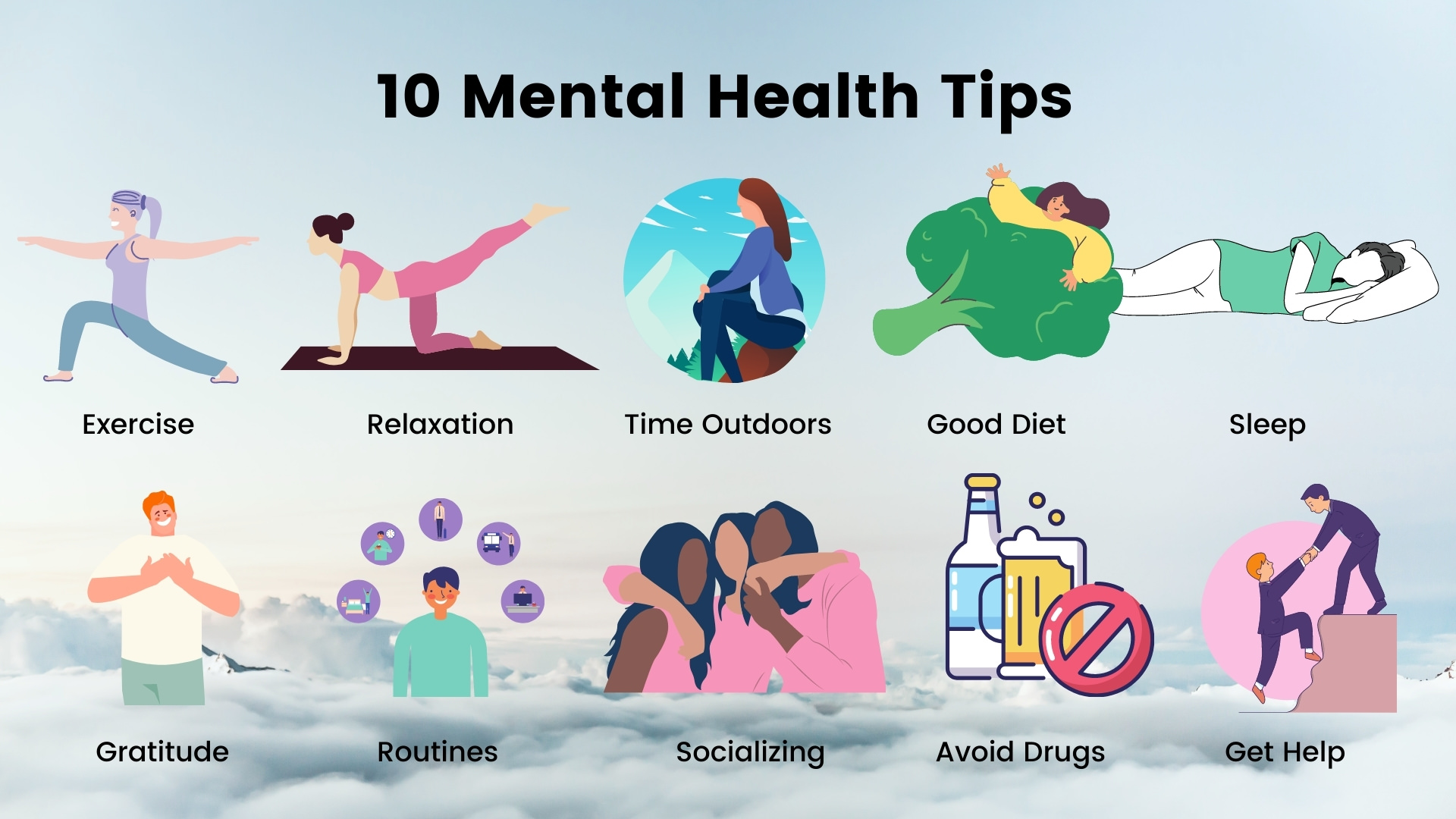Improving Mental Healthcare: Addressing Systemic Challenges

Table of Contents
Inadequate Funding and Resource Allocation
Inadequate funding and resource allocation are major obstacles to improving mental healthcare. This leads to a cascade of negative consequences, impacting both the quality and accessibility of care.
Understaffed Facilities and Long Wait Times
Insufficient funding directly translates to a shortage of qualified mental health professionals. This includes a critical lack of psychiatrists, therapists, social workers, and other essential personnel. The resulting understaffed facilities lead to excessively long wait times for appointments, often delaying crucial treatment and exacerbating existing conditions.
- Wait times: In many urban areas, wait times for a psychiatrist appointment can exceed three months, while in rural areas, access can be even more limited.
- Impact on patient care: Delayed treatment can lead to worsening symptoms, increased hospitalization rates, and a higher risk of suicide. For example, untreated depression can significantly impact employment and social relationships.
- Increased relapse risk: The lack of timely intervention increases the chances of relapse for individuals with pre-existing mental health conditions.
These issues highlight the urgent need for increased mental health funding and strategic healthcare resource allocation to ensure an adequate number of qualified professionals are available to meet the growing demand. The consequences of insufficient mental health funding are far-reaching and costly, impacting individuals, families, and society as a whole.
Limited Access to Specialized Services
The underfunding also extends to specialized mental health services. Individuals requiring treatment for specific conditions, such as addiction, eating disorders, or trauma, often face significant barriers to access.
- Unmet needs: Millions go without specialized care due to a lack of resources and availability. For instance, many communities lack adequate eating disorder treatment clinics, forcing individuals to travel long distances or forgo necessary care altogether.
- Geographic disparities: Access to specialized mental health services is often unevenly distributed, with rural and underserved communities facing the greatest challenges. This geographic disparity further compounds existing inequalities in mental healthcare.
Improving access to specialized mental health services requires targeted funding increases and the development of innovative service delivery models to reach those in need, regardless of location or socioeconomic status.
Stigma and Societal Attitudes Towards Mental Illness
Another major barrier to improving mental healthcare is the pervasive stigma surrounding mental illness. This stigma profoundly impacts individuals' willingness to seek help and significantly contributes to underdiagnosis and untreated conditions.
The Impact of Stigma on Help-Seeking Behavior
The fear of judgment, discrimination, and social isolation prevents many individuals from seeking professional help for their mental health concerns. This silence perpetuates a cycle of suffering and hinders recovery.
- Untreated mental illness: A significant portion of individuals with mental illness remain untreated due to stigma, highlighting the urgency of addressing this pervasive societal issue. The negative impact on individual well-being is undeniable.
- Impact on employment and social relationships: Stigma can lead to job loss, strained relationships, and social isolation, further exacerbating the challenges faced by individuals with mental health conditions.
Addressing the impact of mental health stigma requires a comprehensive approach that includes education, awareness campaigns, and the promotion of supportive and inclusive environments.
Promoting Mental Health Awareness and Education
Public awareness campaigns and educational initiatives play a vital role in combating stigma and encouraging help-seeking behavior. These campaigns can help to normalize mental health concerns, reduce misconceptions, and promote understanding.
- Successful awareness campaigns: Examples include campaigns that feature relatable stories, highlight the importance of seeking help, and challenge negative stereotypes.
- Role of schools and workplaces: Schools and workplaces can play a crucial role in promoting mental health awareness through educational programs, support groups, and employee assistance programs.
By fostering open conversations and promoting mental health literacy, we can create a more supportive and inclusive society where individuals feel comfortable seeking help without fear of judgment.
Integration of Mental and Physical Healthcare
A critical aspect of improving mental healthcare is integrating mental and physical healthcare services. This holistic approach acknowledges the interconnectedness of physical and mental well-being and aims to provide comprehensive, coordinated care.
The Importance of Holistic Care
Integrated care models offer a more effective approach to addressing the complex needs of individuals, particularly those with co-occurring mental and physical health conditions.
- Successful integrated care models: Examples include collaborative care models where primary care physicians and mental health professionals work together to provide coordinated care.
- Benefits of coordinated care: This approach can improve patient outcomes, reduce hospitalizations, and enhance overall well-being.
A unified approach ensures that individuals receive comprehensive care tailored to their individual needs, rather than fragmented services.
Breaking Down Silos Between Healthcare Providers
Effective integration necessitates overcoming communication barriers and fostering collaboration between mental health professionals and primary care physicians.
- Barriers to collaboration: These can include different billing practices, varying levels of training, and a lack of communication channels.
- Strategies to improve communication: Implementing electronic health records, establishing referral pathways, and fostering a collaborative culture are all essential steps to improve communication and information sharing.
Improved communication and information sharing between healthcare providers can lead to more effective and efficient care for individuals with complex mental and physical health needs.
Technological Advancements and Telehealth
Technological advancements, particularly telehealth, offer significant potential for expanding access to mental healthcare, particularly in underserved areas.
Expanding Access Through Telehealth
Telehealth removes geographical barriers, making mental healthcare more accessible to individuals in rural or remote areas where in-person services are limited.
- Successful telehealth programs: Many programs demonstrate the effectiveness of online therapy and virtual mental healthcare, providing convenient and accessible care.
- Benefits and challenges of telehealth mental healthcare: While telehealth offers increased access and convenience, considerations such as privacy, internet access, and technological literacy are crucial for implementation.
Telehealth is a powerful tool for extending the reach of mental health services and ensuring broader access.
Utilizing Technology for Early Intervention and Prevention
Technology can also facilitate early detection and prevention of mental health issues through various innovative applications and tools.
- Mental health apps and digital tools: These tools can provide self-management strategies, monitor symptoms, and connect individuals with support resources.
- The role of AI in mental healthcare: Artificial intelligence holds the potential to personalize treatment plans, improve diagnostic accuracy, and enhance the efficiency of mental healthcare services.
Early intervention is crucial, and technological advancements can significantly improve the early detection and management of mental health challenges.
Conclusion
Improving mental healthcare requires a multifaceted approach addressing systemic challenges such as inadequate funding, pervasive stigma, and the lack of integrated care. By increasing funding for mental health services, promoting widespread mental health awareness, integrating mental and physical healthcare seamlessly, and leveraging technological advancements like telehealth and AI-powered tools, we can create a more equitable and accessible system that prioritizes the well-being of all individuals. Let's work together to significantly improve mental healthcare and ensure everyone has access to the support they need. Join the movement to improve mental healthcare – your actions make a difference.

Featured Posts
-
 Introducing The New Fortnite Icon Skin
May 03, 2025
Introducing The New Fortnite Icon Skin
May 03, 2025 -
 Dlyl Shaml Kl Shye En Jhaz Blay Styshn 6 Aljdyd
May 03, 2025
Dlyl Shaml Kl Shye En Jhaz Blay Styshn 6 Aljdyd
May 03, 2025 -
 Maines Groundbreaking Post Election Audit A Detailed Analysis
May 03, 2025
Maines Groundbreaking Post Election Audit A Detailed Analysis
May 03, 2025 -
 Severe Weather Alert Near Blizzard Conditions Predicted For Tulsa Nws
May 03, 2025
Severe Weather Alert Near Blizzard Conditions Predicted For Tulsa Nws
May 03, 2025 -
 Dari Sampah Menjadi Harta Panduan Lengkap Mengolah Cangkang Telur Menjadi Pupuk Dan Suplemen
May 03, 2025
Dari Sampah Menjadi Harta Panduan Lengkap Mengolah Cangkang Telur Menjadi Pupuk Dan Suplemen
May 03, 2025
